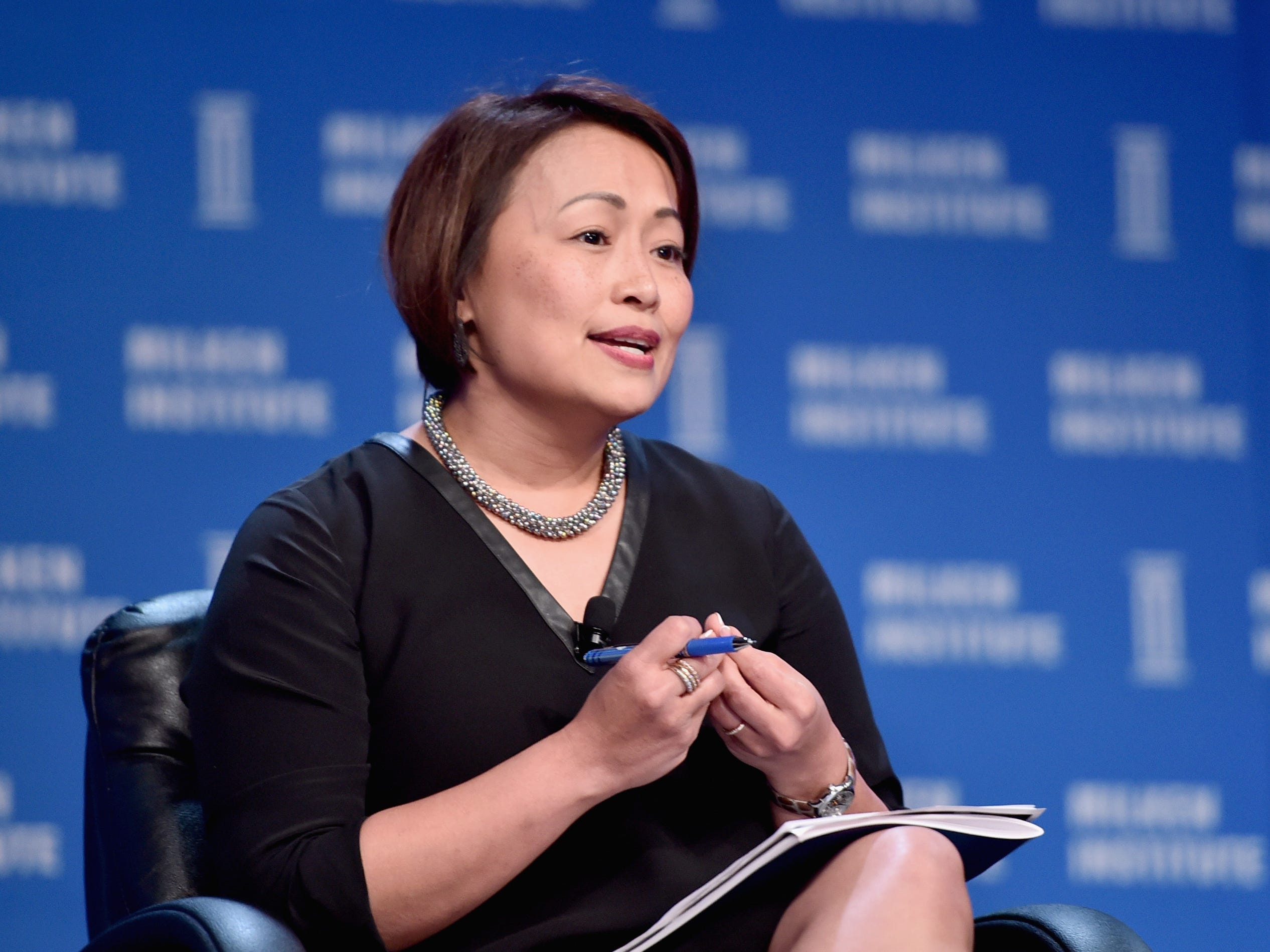
Alberto E. Rodriguez/Getty Images
- Care.com founder Sheila Marcelo has faced plenty of biases in her rise to the top.
- But she's been able to overcome them with a distinctly authentic and empathetic approach.
- Through perseverance, Marcelo led the company to a lucrative IPO.
- This article is part of a series called "Leaders by Day," which takes a look at how prominent business leaders are tackling various challenges in today's economy.
When Sheila Liria Marcelo first pitched the caregiving marketplace Care.com in 2007, a male investor had assumed she was an analyst from the bank.
"No, I'm actually Sheila Marcelo," she said, correcting him. "I'm the founder and CEO of Care.com."
As a Filipino-American, Marcelo, 51, is used to dealing with the implicit biases that women of color in leadership roles encounter daily. She's been overlooked, underestimated, and misunderstood by male investors who couldn't relate to her product. But along the way, Marcelo has adopted empathy and authenticity as her weapons to combat prejudice. Marcelo has now become one of only 22 women to ever found and lead a company to an IPO.
"So much of it starts from within," she said. "You have to be inspired yourself to really believe what's in your heart so that you can shine that energy, and others can feel it."
In 2006, Marcelo founded Care.com to address a problem she faced as a working mother: finding care for her two young children and ailing parents. The platform is the world's largest online marketplace for finding child, pet, and senior care. The company's network has extended to over 35 million members in over 20 countries.
Care.com was acquired by holding company IAC last year for $500 million. Since then, Marcelo has co-founded Landit, the career-centric online platform that connects women and diverse groups with such resources as career coaching and personal branding tools. Marcelo joined venture capital firm New Enterprise Associates in January, where she's focused on helping other female founders get the funding they need.
Even as the number of female-owned businesses has risen in the US and around the world - 28% of company founders are women - biases within the VC industry can prevent access to funds.
"When I describe to people the challenges of a female founder, there's a little bit of disbelief," Marcelo told Insider. "They're like, 'oh, come on - it can't be the case.' It sometimes feels like you're using it as an excuse when in reality, the biases are there."
An empathy-based approach
One of the most challenging hurdles for a woman founder, Marcelo said, is getting male investors interested in what you have to offer. The gender gap in venture capital funding is a major hurdle for female founders.
Pitchbook reported in 2019 that 2.7% of venture capital went to companies founded only by women, while companies cofounded by both men and women garnered 14%. Additionally, only 13% of all venture capital decision-makers are women. Those numbers become even starker for women of color.
Marcelo noticed that when she pitched her company to male funders, they often failed to see the need for a caregiving platform, since in many traditions, caregiving is perceived as a woman's responsibility.
"They don't resonate or relate to the service," Marcelo said. "But if you have a female analyst in the room or a female investor in the room, the dynamic will change."
Marcelo tries not to respond to the biases of others with anger. Instead, she approaches each situation from a place of empathy.
"I would rather attack biases not with aggression, but with understanding," Marcelo said. "I think it's part of our humanity to better understand how people can embrace an educator, and really educate them about their biases so that they're not behaving in the same way."
When the investor incorrectly passed Marcelo off as a bank analyst in 2007, she decided not to belabor his biases. Instead, she focused on hard facts, her knowledge about the business, and the profits she had been able to yield. Under Marcelo's guidance, Care.com didn't just profit - it was acquired by IAC at a 34% premium for $500 million. She hopes the experience was a lesson for the investor as well.
"The next time it happens to another woman, he's going to take a pause and say, 'do I have biases?'"
Authentic boldness
The phrase "authentic boldness" might initially seem contradictory. Authenticity often demands vulnerability, and boldness often calls for an elevated, more confident version of oneself. But Marcelo believes the two traits are complementary.
"The more you're open about yourself, the more confident you are," Marcelo said. "You care less about what people think, and your goal in life is actually to serve others and not impress others. There's a sense of coming out with who you are."
When Marcelo participated in televised interviews, her voice coach told her that her posture and tone of voice were too low in energy. Marcelo found that it was because she was actively trying to mirror the energy of her interviewer.
She stopped trying to match her interviewer and instead projected her own personality onto the interview. And that, Marcelo said, allowed her to elevate the conversations.
That's why Marcelo encourages others to bring their truest selves to the table. And in doing so, they'll be able to be bold in their own authenticity.
